A SACRED THING COMING TO THE CASA THEATRE!
Columbia, Tennessee. 1946. James Stephenson, an African-American naval veteran of the Second World War enters into a fracas with the owner of a radio repair store who mistakenly sold on James’ mother’s radio to the store owner’s father.
William Fleming and his father John Calhoun Fleming are white. The victims of Tennessee’s frequent lynchings are not. One act of violence especially was fresh in the minds of Columbia residents. Cordie Cheek was kidnapped from his Nashville home in 1933, dragged to Columbia and hanged. Many of the perpetrators were law officials. Cordie was 19 years old.
As fear of lynch mobs and attacks on Columbia’s black community grew, so did they prepare themselves to stand in the face of police brutality and violent riposte. The disturbance was dubbed the Columbia Race Riots. Twenty-five black men were charged with the attempted murder of four police officers. The defendants were represented by none other than Thurgood Marshall, of ‘Brown v. Board of Education’ fame.
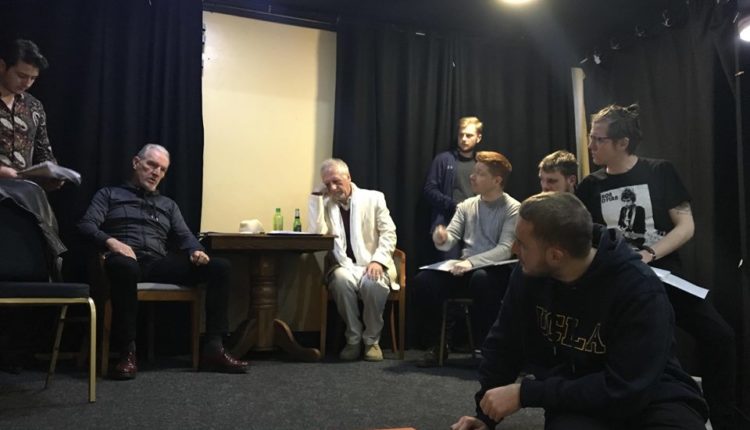
Alabama, 1957. Jimmy Wilson steals the sum of $1.95 from a white widower Estelle Barker. He was accused of rape and sentenced to death for ‘violent robbery’. The sexual assault claim was never supported. The Supreme Court upheld the sentence on appeal.
Jimmy Wilson’s execution was commuted to a life sentence in 1958. Twenty-four of the twenty-five Columbian defendants were acquitted. The Columbia Race Riots proved instrumental in shining a light on civil rights for black Americans.
Victories? Perhaps. And perhaps it’s not for me to say. Both cases have one distinct similarity, however. Both cases were deliberated on by an all-white jury.
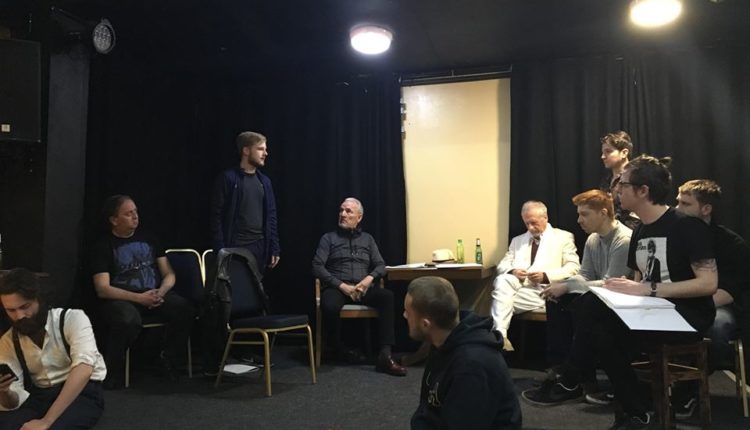
Liverpool, 2019. Lauren Fahy and Rachel Brierley are Secret Key Productions. Their debut is a court room drama composed by Lauren’s grandfather and namesake, Laurence Power. The events of the play are inspired by the Columbia Race Riots and Laurence’s deep respect for Thurgood Marshall, who would later become the first African-American appointed to the Supreme Court in 1967.
The play is called A Sacred Thing. It will be on at The Casa on the 3rd, 4th and 5th of April. Tickets are available here.
I sat down with Lauren and Rachel and picked their brains. “The play is based on a true story that took place in 1946 in southern America” Lauren told me. “It follows the jury’s deliberations throughout a case that surrounded a police brutality incident; a race trial and one that was very influential in the civil rights movement.”

Lauren continued: “My grandad wrote the play and forced me to read it! [Laughs]. He’s a very well-educated man. He did a masters in playwriting and wrote A Sacred Thing as a result. I read it and just thought it was amazing. I contributed tweaks and we all have as we’ve gone along. This process has been a learning curve, but everyone involved has been responsible for shaping what the actual end product will be.”
The subject matter is hard-hitting, make no mistake. But what do the struggles of a country 4,000 miles away and 50 years gone have to do with a small theatre in Liverpool today? “It would be sad to think that just because of where someone’s come from they can’t fight a battle that isn’t theirs.” Rachel said.
I asked her whether the depiction of such events by an all-white, all-male cast could be troublesome in this day and age. Would it be able to get the message across? After all, why put the production on if it has nothing to do with us as individuals?
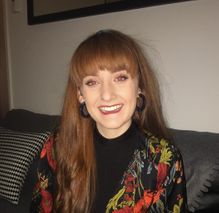
She continued “I do get that, and it’s something we have worried about. Twelve white men on stage talking about racial injustice? But it’s about the jury’s journey and creating social change from that environment. It could be very much seen as the white saviour, but we don’t want it to come across like that.
The way that we have directed it, the way we have staged everything gets that across, I think. The themes running through it and the language used portrays that. If you start changing the play and changing the monologues, changing the structure of the play to make it more inclusive, I think it loses the message completely.”
Lauren added “We have to get it right in showing what was wrong then to a modern audience. We’ve cut a lot of words that would have been used so readily at that time. We do use racist terms, yes, but it’s done delicately and for a purpose. You see the other jurors react very strongly to those words when they’re used. I looked into Tarantino. He’s great, but there is a debate about him using racial epithets so frivolously.”
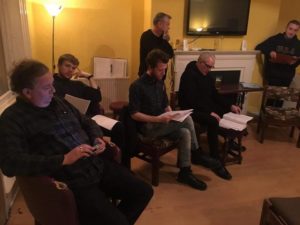
It’s true; racial epithets are used rapturously in various swathes of media, mostly to provoke something other than disgust or shock. I’m sure QT is not the only offending party. I can confidently say that it is refreshing to see these words and terms elicit something other than a call to cool. And when used appropriately in conjunction with carefully honed dialogue and good acting (with which, A Sacred Thing is brimming), it does provoke pathos in the way that is intended, and the characters who use such slurs are certainly not rewarded.
I have a lot of admiration for Rachel’s stance about trading comfort for verisimilitude “We have no right to take ownership of language that is now deemed unacceptable in terms of race, in terms of gender or anything that’s socially unacceptable in a modern society. But if you want to be comfortable go to a spa, don’t go to the theatre because we’re here to provoke a response.”
Lauren added “I never really want to make a piece of theatre where people can walk away and feel completely comfortable. We really want people to think.”
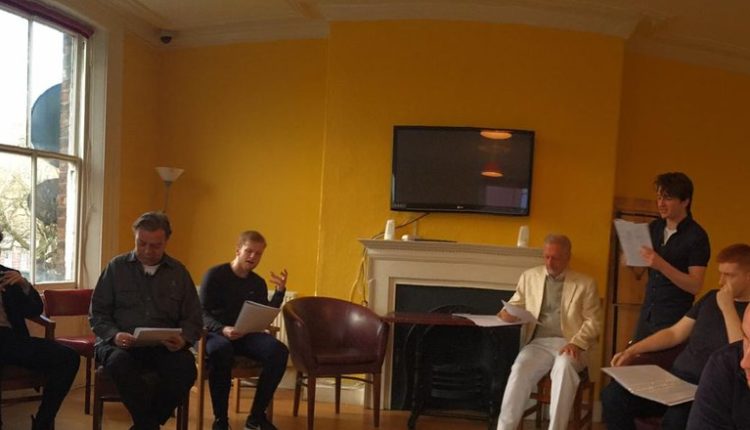
The Unite the Right Rally was held in Charlottesville, Virginia two years ago. The protests started when the local government wished to remove monuments commemorating confederate heroes. The statues were erected during the civil rights movement in an attempt to intimidate and assert authority over African-Americans. Heather Heyer was murdered when a Nazi ploughed his car into a group of protesters. Donald Trump, the president of the United States of America, had this to say “Some very fine people on both sides”.
Rachel had it right, it would be sad to think that you can’t fight a just battle because of who you are, where you are or where you’re from. We have a white supremacist in the Whitehouse. In the four years of Donald Trump’s presidency there has never been a more apt time to reflect on the events in courtrooms 4,000 miles away and 50 years ago, no matter who you are or what you look like.
A Sacred Thing will hit The Casa on the 3rd, 4th and 5th of April. Tickets are on sale now. There will be a collection box for the charity HandsUpUnited. We will be collecting for a programme dedicated to providing arts and creative opportunities in impoverished neighbourhoods.
The Crew
Laurence Power — Writer
Lauren Fahy — Writer, co-director
Rachel Brierley — Co-director
Alex Carr — Videographer
Laura Kilfoyle — Hair and Makeup
The Cast
Jamie Peacock
John Anthony Hilton
Neil MacDonald
Alisdair Reid
Mikey Latham
Elliott Crinson
Jordan Barkley
Luke Morgan
Josh Ennis
Tom Coleman
Conor Burns
Gareth Crawshaw

